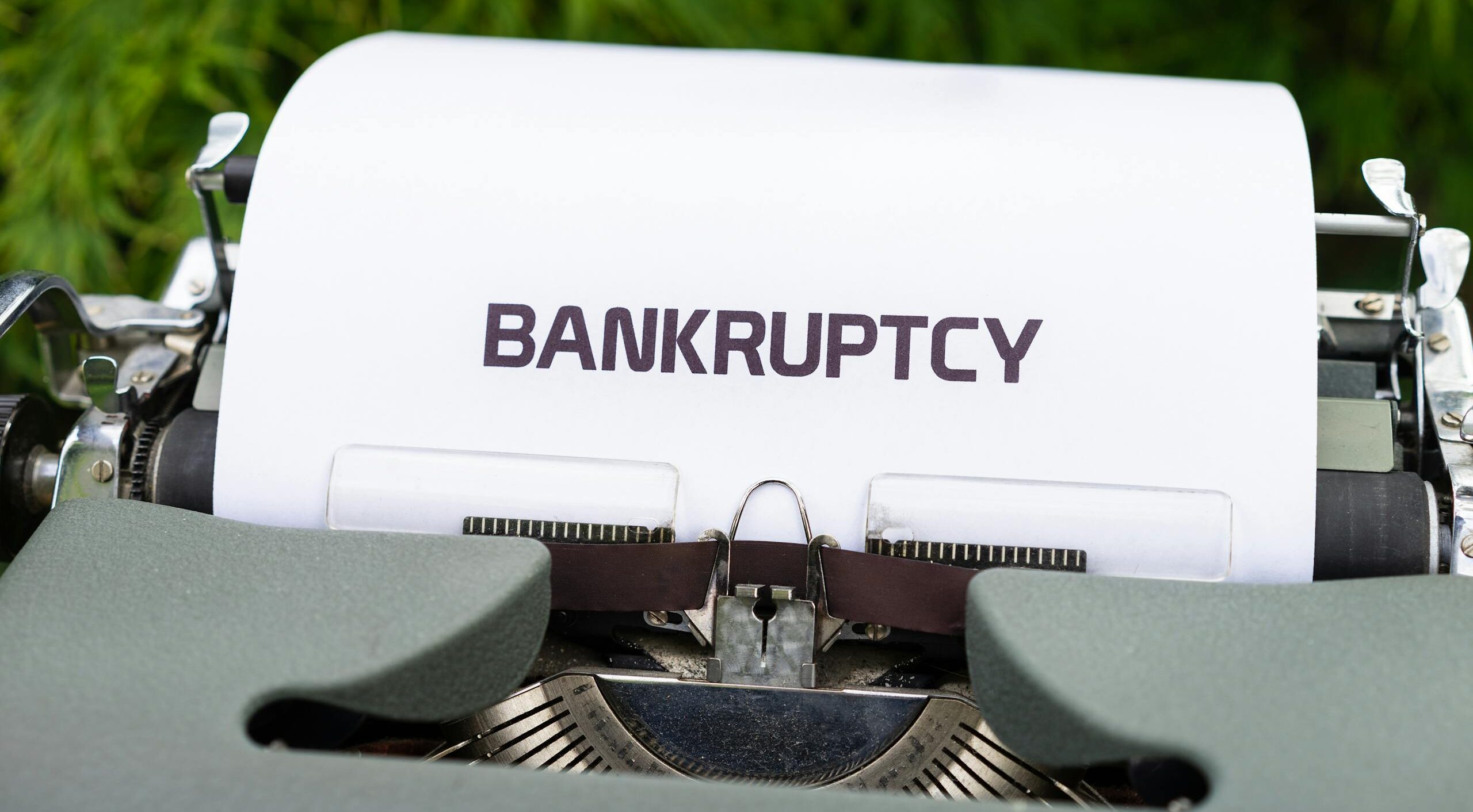Mortgage Guidelines After Chapter 7 Bankruptcy On Home Purchase
Home Buyers can qualify for home loans after bankruptcy if they meet mortgage guidelines after Chapter 7 Bankruptcy. Chapter-7 bankruptcy is a legal process that enable someone to eliminate most of their unsecured debts, giving them an opportunity to restore their financial stability. Although it can majorly affect credit scores and borrowing potential, it does not permanently bar homeownership. Once Chapter 7 is discharged, borrowers must meet specific mortgage guidelines before becoming eligible for a home loan.
- Based on Mortgage Guidelines After Chapter 7 Bankruptcy, there are mandatory waiting period requirements after the discharged date to qualify for government and/or conventional loans.
- Under the government and conventional Mortgage Guidelines After Chapter 7 Bankruptcy, borrowers can qualify for home loans.
- Most lenders require no late payments after the discharged date and re-established credit
- Late payments after bankruptcy and foreclosure is allowed with Gustan Cho Associates Mortgage Group
Gustan Cho Associates has no overlays on government and conventional loans. Our Loan Officers has deep knowledge about mortgage guidelines after Chapter 7 Bankruptcy.
What Is Chapter 7 Bankruptcy?
Chapter 7 Bankruptcy is a federal law where people in debt can get a fresh start and have the opportunity to discharge all of their debt. Those thinking of filing Chapter 7 Bankruptcy needs to pass the Chapter 7 Bankruptcy Means Test. Once someone files for Chapter 7 bankruptcy, all creditors and debt collectors cannot pursue any debt collection activities.
A bankruptcy trustee gets appointed where he or she reviews the list of all creditors and the petitioner’s assets. If there are assets of value, non-exempt assets, it gets liquidated to pay creditors.
The bankruptcy petitioner can keep exempt assets such as a limited amount of cash, home, auto, and limited amount of personal assets. Chapter 7 bankruptcy is also known as straight bankruptcy and/or liquidation bankruptcy. People that file Chapter 7 bankruptcy are those with little or no assets and a lot of debts and judgments.
Had a Chapter 7 Bankruptcy? Find Out When You Can Qualify for a Mortgage Again
Apply Online And Get recommendations From Loan Experts
What Can Be Discharged In Chapter 7 Bankruptcy?
Most debts can be discharged with a Chapter 7 Bankruptcy. Chapter 7 bankruptcy does not discharge government debts such as delinquent income taxes and student loans. Child support is not allowed to be discharged in Chapter 7 bankruptcy either. Medical bills, credit card bills, deficiency judgments, and other unsecured/secured debts are all allowed to be discharged in a Chapter 7 bankruptcy. Those who get a Chapter 7 discharge no longer owe any creditor any more money and has a fresh financial start in life. Judgments that are not government debt can be discharged under Chapter 7 Bankruptcy.
Chapter 7 Bankruptcy Process
A Chapter 7 Bankruptcy normally takes from three to six months from the filing date to the discharge date. The process provides debt relief for individuals that was having a hard time with overwhelming financial burdens. While it involves legal procedures and impacts credit, it offers a way to a fresh financial start. The cost to file a Chapter 7 Bankruptcy is normally $300. Bankruptcy petitioners will normally pay anywhere between $1,000 to $3,000 depending on which bankruptcy attorney they use. The majority of the bankruptcy costs are for the services of the bankruptcy attorney. Understanding the process helps individuals determine whether Chapter-7 is the right choice for their financial situation.
Qualifying For Chapter 7 Bankruptcy
Someone filing for Chapter 7 bankruptcy must complete an approved course of credit counseling that needs to be approved by the United States Bankruptcy Trustee.
- As mentioned earlier, the day bankruptcy petition is filed, an order of relief goes into effect immediately which is an automatic stay
- This automatic stay that goes into effect the date the bankruptcy petition is filed immediately stops all of the creditors
- Debt collectors from pursuing any collection activities
- It is a cease and desist order and it is illegal for any creditors or debt collectors even contacting consumers
Creditors and debt collectors cannot garnish wages or bank accounts and they cannot lien any of the assets or properties that petitioners own.
Role Of Bankruptcy Trustee
When someone files for bankruptcy, a trustee is in charge of petitioners financial affairs. A bankruptcy trustee is a court official who manage a bankruptcy case, ensuring compliance with laws and an equal distribution of assets to creditors. The trustee’s role varies depending on the type of bankruptcy filed.
Mortgage Guidelines After Chapter 7 Bankruptcy: Waiting Periods & Qualifications
In line with mortgage guidelines after Chapter 7 Bankruptcy, each mortgage loan type has different waiting periods after Chapter 7 bankruptcy before borrowers can qualify for a home purchase:
- FHA Loan Guidelines
Waiting Period: 2 years from the discharge date.
Credit Score Requirements: Minimum 580 for 3.5% down; 500-579 requires 10% down.
Late Payments After Discharge: No recent late payments improve approval chances.
Compensating Factors: Strong employment history, savings, or low DTI can strengthen approval chances.
Manual Underwriting Option: This option is available for borrowers with a strong rental history and compensating factors. - VA Loan Guidelines
Waiting Period: 2 years from the discharge date.
Credit Score Requirements: No official minimum, but most lenders require 580-620.
Collections and Charge-offs: Not required to be paid off but could impact debt-to-income (DTI) calculations.
Compensating Factors: Sufficient residual income and stable employment help in manual underwriting approvals. - USDA Loan Guidelines
Waiting Period: 3 years from the discharge date.
Credit Score Requirements: 640+ for automated approval, but lower scores may qualify with manual underwriting.
Collections and Charge-offs: Larger unpaid debts may need to be settled before closing.
Stable Payment History: Borrowers must demonstrate financial responsibility post-bankruptcy. - Conventional Loan Guidelines (Fannie Mae & Freddie Mac)
Waiting Period: 4 years from the discharge date.
Credit Score Requirements: Minimum 620, but higher scores result in better rates.
Compensating Factors: Strong income, higher down payment, and cash reserves improve approval odds.
Extenuating Circumstances Exception: Reduces the waiting period to 2 years with documentation of a significant hardship (e.g., medical emergency, job loss).
Personal Home And Secured Liabilities In Bankruptcy

By looking into mortgage guidelines after Chapter 7 Bankruptcy, homeowners can keep home and still file bankruptcy. Those who are behind on mortgage payments and are in foreclosure proceedings, filing bankruptcy will put an automatic stay on foreclosure proceedings. The lender can ask the trustee to lift the automatic stay so they can proceed with the foreclosure proceedings as well.
Homeowners who are current on mortgage payments and plan on keeping house, they can exclude mortgage from the bankruptcy and continue making payments and still keep home same as with any vehicles.
Bankruptcy petitioners with automobile loan and are current on payments can keep their cars. They can exclude the automobile loan from the bankruptcy and continue to make auto payments and keep the vehicle. A lien or judgment against home or car can be wiped out in a bankruptcy.
Can You Buy a Home After Chapter 7 Bankruptcy?
Apply Now And Find Out Your Best Loan Options
Chapter 7 Bankruptcy Discharge
After three to six months, the final outcome wanted is a bankruptcy discharge. Chapter-7 bankruptcy discharge is the final step in a Chapter-7 bankruptcy case. In this step, the court eliminates a debtor’s qualifying debts, relieving them of the legal obligation to repay those debts. This typically happens about 60 to 90 days after the 341 meeting of creditors (a required hearing in the bankruptcy process).
What Happens After a Chapter 7 Discharge?
Based on mortgage guidelines after Chapter 7 Bankruptcy, the debtor is no longer responsible for discharged debts. The bankruptcy case is typically closed soon after discharge unless unresolved legal issues exist. Credit rebuilding can begin, often with secured credit cards or credit-builder loans.
Outcome Of Bankruptcy
The long term effects of bankruptcy includes difficulties in getting a new credit, challenges in securing loans or rental housing, and increased interest rates. But, with careful financial management and proactive credit rebuilding strategies, financial stability can be restored over time giving consumers a fresh start in life. Most people start re-establishing their credit from the discharge date of their bankruptcy. Best way to re-establish credit after a bankruptcy is by getting three $500 credit limit secured credit cards.
FAQs: Mortgage Guidelines After Chapter 7 Bankruptcy on Home Purchase
1. How long after a Chapter 7 bankruptcy can I buy a home?
Based on mortgage guidelines after Chapter 7 Bankruptcy, it depends on the loan type.
-
- FHA & VA Loans: 2-year waiting period from the discharge date.
- Conventional Loans (Fannie Mae & Freddie Mac): 4-year waiting period.
- USDA Loans: 3-year waiting period.
- Non-QM & Portfolio Loans: No waiting period is required in some cases.
2. Can I qualify for a mortgage while in Chapter 7 bankruptcy?
According to mortgage guidelines after Chapter 7 Bankruptcy, You need to wait until your bankruptcy is discharged and meet the required waiting period.
3. Will my credit score affect my mortgage approval after bankruptcy?
Per mortgage guidelines after Chapter 7 Bankruptcy, lenders have minimum credit score requirements (e.g., 580 for FHA loans). The higher your score, the better your loan terms.
4. Are there exceptions to the waiting period for mortgage approval?
As stated in mortgage guidelines after Chapter 7 Bankruptcy, extenuating circumstances (e.g., job loss, medical hardship) may reduce conventional loan waiting periods to 2 years instead of 4.
5. How can I improve my chances of mortgage approval after Chapter 7?
Rebuild credit with secured credit cards and installment loans.
Keep the debt-to-income (DTI) ratio low by managing new debt carefully.
Save for a down payment (3.5% for FHA, 5%+ % for conventional).
Show financial stability with steady income and on-time payments.
6. What mortgage programs are best after Chapter 7 bankruptcy?
Based on mortgage guidelines after Chapter 7 Bankruptcy, FHA loans are the most accessible due to lower credit scores and down payment requirements. VA loans (for eligible veterans) offer no down payment or minimum credit score requirement by VA guidelines. While, Non-QM loans are available for those who don’t meet traditional guidelines.
7. Do I need a down payment after Chapter 7?
According to mortgage guidelines after Chapter 7 Bankruptcy, yes, you need a down payment unless you qualify for VA (0% down) or USDA loans (0% down in rural areas). FHA requires 3.5% down, and conventional loans require at least 5%.
8. Will my bankruptcy affect mortgage interest rates?
Initially, yes—rates may be higher due to the bankruptcy’s impact on credit. However, you can refinance for better rates over time with improved credit.
9. Can I get a mortgage with a co-borrower after bankruptcy?
Per mortgage guidelines after Chapter 7 Bankruptcy, a co-borrower with strong credit and income may improve your approval chances.
10. Can I buy a house using alternative financing after Chapter 7?
Yes, in line with mortgage guidelines after Chapter 7 Bankruptcy, seller financing, rent-to-own, and non-QM loans are options if you don’t meet traditional lending guidelines.
Gustan Cho Associates has no overlays on Mortgage Guidelines After Chapter 7 Bankruptcy. We are direct lenders with no overlays on government and conventional loans. Home Buyers who need to qualify for a mortgage with a national lender with no overlays, or has further questions about mortgage guidelines after Chapter 7 Bankruptcy, please contact us at 800-900-8569 or text us for faster response. Or email us at gcho@gustancho.com.
Bankruptcy Doesn’t Have to Stop You
Apply Now And Talk to a Loan Expert & Plan Your Next Steps







